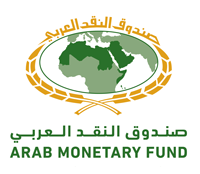
Arab Monetary Fund (AMF)
Fonds Monétaire Arabe (FMA)
صندوق النقد العربي
Search Open Yearbook
This information is part of the Open Yearbook, a free service of UIA's subscription-based Yearbook of International Organizations (YBIO). It includes profiles of non-profit organizations working worldwide in all fields of activity. The information contained in the profiles and search functionality of this free service are limited.
The full-featured Yearbook of International Organizations (YBIO) includes over 77,500 organization profiles, additional information in the profiles, sophisticated search functionality and data export. For more information about YBIO, please click here or contact us.
The UIA is a leading provider of information about international non-profit organizations. The aim of the Open Yearbook is to promote the activities of international non-governmental organizations (INGOs) and intergovernmental organizations (IGOs).
Contact Details
URL: https://www.amf.org.ae/
Facebook: https://www.facebook.com/arabmonetaryfund
LinkedIn: https://www.linkedin.com/company/arab-monetary-fund/
Youtube: https://www.youtube.com/channel/UCpGu2nhWjl1MfeEniAciMiw
Founded
1976-04-27 Rabat Morocco
History
Available with paid subscription only.Aims
Promote monetary and economic integration development among Arab countries. 'Main Objectives': (1) Correcting disequilibria in the balance of payments of member states. (2) Promoting the stability of exchange rates among Arab currencies, rendering them mutually convertible, and assisting in the elimination of restrictions on current payments between member states. (3) Promoting the development of Arab financial markets. (4) Studying ways to promote the use of the Arab dinar as a unit of account and paving the way for the creation of a unified Arab currency. (5) Coordinating the position of member states in dealing with international monetary and economic problems with the aim of realizing their common interest while, at the same time, contributing to the settlement of world monetary problems. (6) Settling current payments between member states in order to promote trade among them.
Events
24 past events available with paid subscription only.Activities
Available with paid subscription only.Structure
Available with paid subscription only.Languages
Available with paid subscription only.Staff
Available with paid subscription only.Finance
Available with paid subscription only.Relations with Inter-Governmental Organizations
Cooperates with: E-XE3381 - UNCTAD. Member of: F-XF4542 - Islamic Development Bank (IsDB); F-XF6504 - OPEC Fund for International Development (OFID). Links with:
- U-XE1110 - Arab Centre for Energy Studies (ACES);
- E-XE5263 - Arab Economic and Social Council (AESC);
- F-XF4228 - Arab Fund for Economic and Social Development (AFESD);
- F-XF2177 - Arab Investment and Export Credit Guarantee Corporation (DHAMAN);
- F-XF0184 - Bank for International Settlements (BIS);
- F-XF2441 - European Bank for Reconstruction and Development (EBRD);
- F-XF0670 - European Investment Bank (EIB);
- F-XF5980 - Intergovernmental Group of Twenty-Four on International Monetary Affairs (Group of Twenty-Four);
- F-XF1393 - International Bank for Reconstruction and Development (IBRD) (World Bank);
- F-XF2057 - International Finance Corporation (IFC);
- F-XF2266 - International Monetary Fund (IMF);
- E-XE2639 - International Trade Centre (ITC);
- G-XG7778 - Japan International Cooperation Agency (JICA);
- E-XE8201 - Joint Ministerial Committee of the Boards of Governors of the Bank and the Fund on the Transfer of Real Resources to Developing Countries (Development Committee);
- C-XC4129 - Organisation of Islamic Cooperation (OIC);
- D-XD0064 - Organization of Arab Petroleum Exporting Countries (OAPEC);
- E-XE3382 - UNDP.
Links indicated by: F-XM1037 - Middle East and North Africa Financial Action Task Force (MENAFATF).
Relations with Non-Governmental Organizations
Links with: D-XD1413 - Arab Federation of Capital Markets; E-XJ9436 - Consultative Group to Assist the Poor (CGAP); E-XE3164 - Arab Coordination Group (ACG); D-XD5575 - Union of Arab Chambers (UAC); D-XD4543 - Union of Arab Banks (UAB); D-XJ9437 - Union of Arab Securities Authorities (UASA). Links indicated by: C-XM0093 - International Association of Deposit Insurers (IADI).
Publications
Available with paid subscription only.Members
Available with paid subscription only.Type I Classification
Available with paid subscription only.Type II Classification
Available with paid subscription only.Subjects *
UN Sustainable Development Goals **
UIA Org ID
XF5515
** UN SDGs are linked to the subject classification.
← return to your search page to find additional profiles.
UIA allows users to access and make use of the information contained in its Databases for the user’s internal use and evaluation purposes only. A user may not re-package, compile, re-distribute or re-use any or all of the UIA Databases or the data* contained therein without prior permission from the UIA.
Data from database resources may not be extracted or downloaded in bulk using automated scripts or other external software tools not provided within the database resources themselves. If your research project or use of a database resource will involve the extraction of large amounts of text or data from a database resource, please contact us for a customized solution.
UIA reserves the right to block access for abusive use of the Database.
* Data shall mean any data and information available in the Database including but not limited to: raw data, numbers, images, names and contact information, logos, text, keywords, and links.